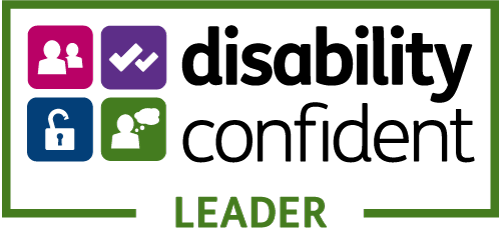Embracing Positivity: Working with a Disability or Health Condition

The idea of entering the world of work with a health condition may seem challenging.
However, it is entirely possible to thrive within your prospective or current workplace. Whether you’re dealing with a visible or invisible condition, finding the right balance between managing your health and maintaining productivity at work is key. With the right strategies, resources, and mindset, you can build a successful career that aligns with your needs and aspirations.
First, you need to understand your rights.
In the UK, employees are protected from disability-based discrimination by the Equality Act 2010. Knowing your rights empowers you to advocate for yourself and ensures that you’re treated fairly in the workplace and not being taken advantage of.
For example, if our employment contract states that your role is remote but you are asked to come into the office 4 days a week a few months into your employment, this is a breach of contract and is unacceptable, especially if you have a disability.
Communication is key!
Open communication with your employer is crucial, especially when you need accommodations or flexibility. While it may feel uncomfortable to discuss your disability or health condition, transparency can lead to a more supportive work environment. Start by assessing what accommodations would help you perform your job more effectively, whether it’s flexible hours, assistive technology, or modifications to your workspace.
It’s also important to discuss your health condition with HR or your manager as needed, so they can understand how to best support you. Remember, you have control over how much or how little you want to talk about; the goal is to share what’s necessary to receive the support you need.
Disability and difference bring added value to the workplace.
One of the key ways that disability adds value to the UK workplace is through fostering innovation and creativity. People with disabilities often develop unique problem-solving skills as they navigate a world not always designed with their needs in mind. This ability to think outside the box can lead to innovative approaches to work, offering fresh perspectives that can drive business success.
For example, employees with disabilities may bring new ideas for improving accessibility, which can lead to better products and services that cater to a broader customer base. Companies like Microsoft have benefited from this approach, with their commitment to accessibility leading to the development of products like the Xbox Adaptive Controller, which serves a wider range of gamers.
Are you just getting started or looking for an inclusive employer?
Get in touch today to receive 1:1 support towards a rewarding and fulfilling career!


